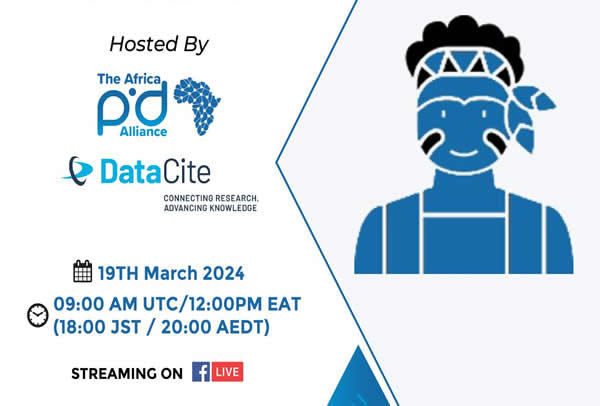The African PID Alliance, in partnership with DataCite, is pleased to invite you to join us for a webinar discussing the potential for sample PIDs to augment efforts in African countries to preserve their indigenous knowledge and cultural heritage. In particular, we will present:
– Africa PID Alliance’s objective in producing PIDs for Indigenous Knowledge and Cultural Heritage through its multilinear model to support the object lifecycle.
– Real-world cultural heritage preservation challenges and opportunities within Kenya, as an example for Africa.
– An introduction to IGSN IDs and their use cases and the practicalities of IGSN ID adoption for cultural heritage sites and objects.
Indigenous Knowledge:
Assigning PIDs to indigenous knowledge is an important step towards preserving, documenting, and managing it respectfully in digital systems. PIDs are unique identifiers that can be assigned to a variety of digital assets, including texts, images, audio recordings, videos, and databases. They provide the persistent and explicit identification of these resources, ensuring their discoverability, accessibility, and citability across time. We will demonstrate how the Africa PID Alliance programme by TCC Africa wants to assist stakeholders in this endeavor.
Cultural Heritage:
Africa’s ancient heritage, traditions, and identities must be protected. Protecting this legacy acknowledges African ancestors while also demonstrating the continent’s perseverance, inventiveness, and global interconnectedness. However, colonialism obliterated and deformed indigenous cultures, making it difficult to protect African cultural legacy. Many African countries lack financing and infrastructure; therefore, cultural heritage sites and objects are poorly identified and recorded. The International Generic Sample Number (IGSN ID) is a globally unique and persistent identifier that can be assigned to any artifact or site of importance, and thus help to reduce this difficulty.


